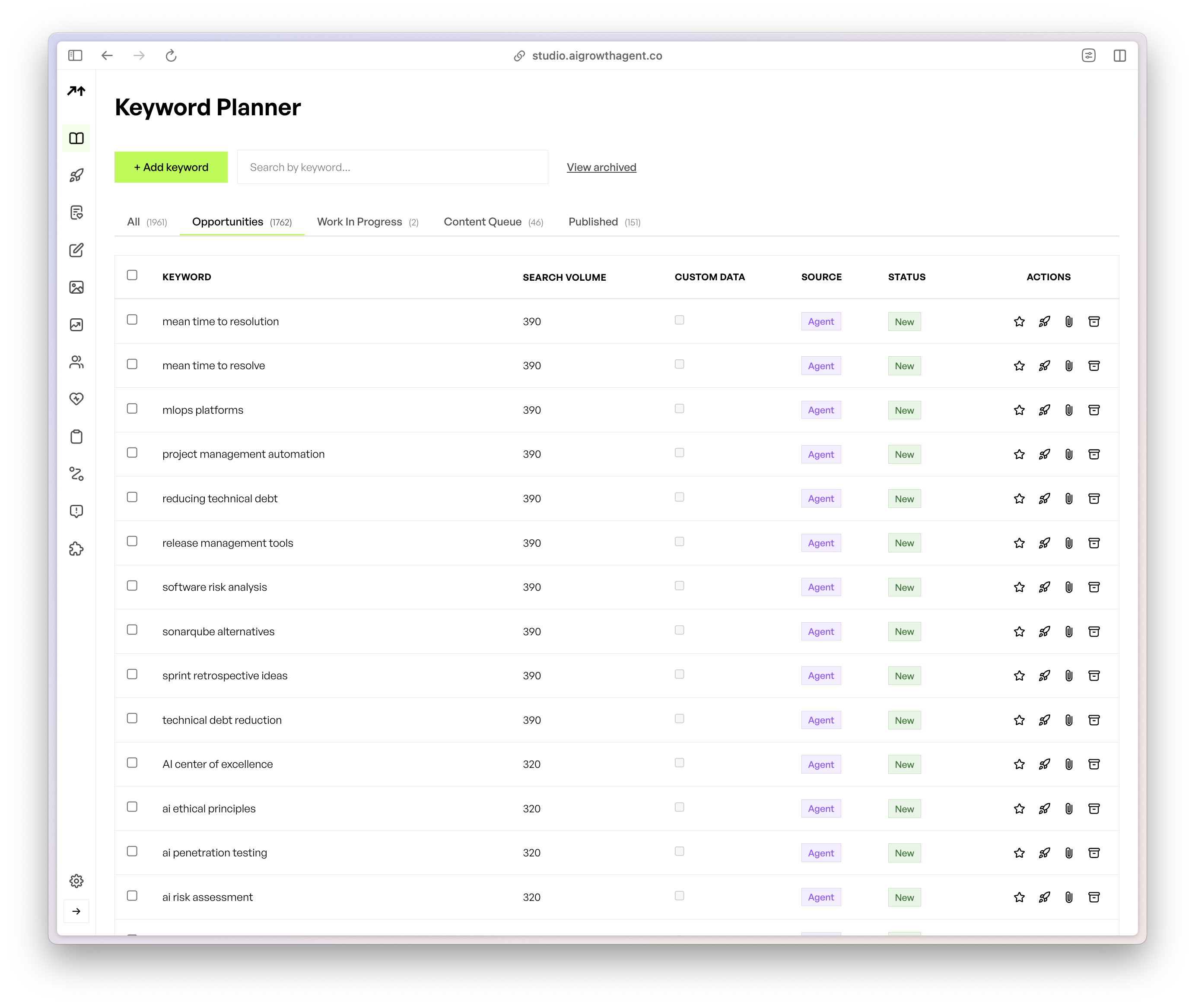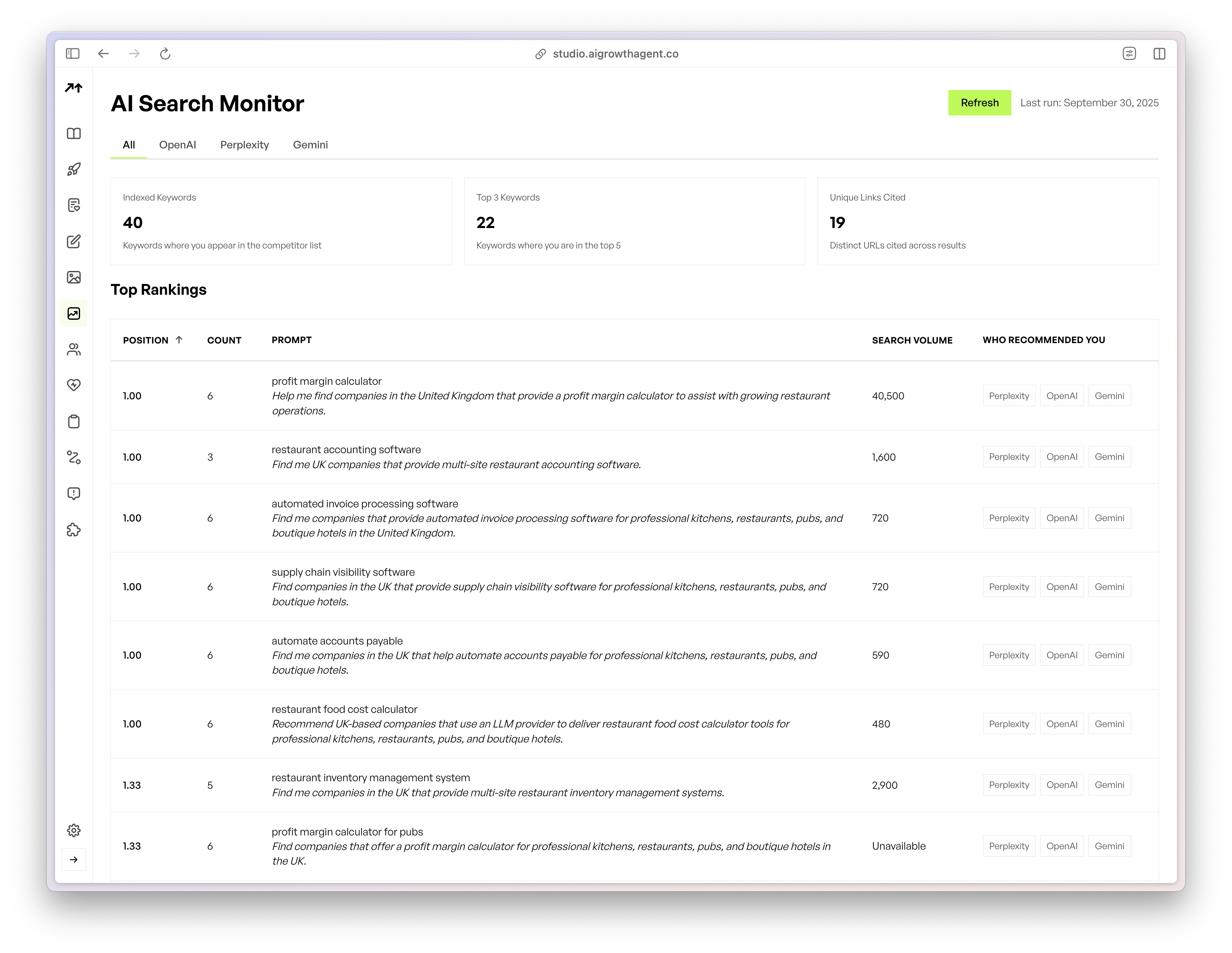AI search is changing how people find information online, and it’s reshaping website accessibility in ways traditional methods can’t handle. This shift means rethinking content creation to serve both human users and AI models. Let’s dive into why old-school approaches no longer cut it and explore practical, AI-focused solutions to keep your brand visible and cited by AI tools.
Why Traditional Accessibility Doesn’t Work for AI Search
Digital discovery has changed dramatically. Methods like WCAG compliance and classic SEO, once enough for website accessibility, fall short in an AI-driven search world. Marketing leaders at top brands now face a real problem: their websites risk being ignored by the AI tools millions use to find information.
Your Digital Presence Is Shrinking in AI Search
The way customers find businesses online has shifted. AI tools like ChatGPT, Gemini, and Perplexity are now key discovery platforms, changing how information reaches users. Your brand’s online presence is getting smaller as AI generates vast amounts of content. Without a specific plan for AI search, even established brands can disappear from view.
Classic SEO, built on keywords and backlinks, doesn’t fully address AI search needs. While Google still dominates, conversational AI platforms prioritize credible sources over mere links. If your content isn’t optimized for AI to understand, it won’t be cited when users ask about your industry. Instead, competitors might take the spotlight.
WCAG Compliance Isn’t Enough for AI Understanding
Website accessibility has long relied on Web Content Accessibility Guidelines (WCAG) to support human users, especially those with disabilities. However, meeting these standards doesn’t mean AI systems will interpret or reference your content correctly.
There’s a clear gap between human-focused accessibility and AI needs. WCAG ensures content works for screen readers, but AI tools need structured data and clear meaning to parse and cite information. A site might be user-friendly for humans yet miss the mark for platforms like ChatGPT. Incorrect or missing citations by AI can harm a brand’s reputation and competitive standing.
The Risk of Ignoring AI Search Trends
Staying idle as AI search grows carries serious consequences beyond lost traffic or rankings. If your content isn’t structured to answer user questions, AI will point to competitors instead. Their solutions will be highlighted, shaping the narrative that AI presents to potential customers.
This disadvantage builds over time. While traditional SEO takes months for results, competitors using AI-focused strategies gain ground quickly. Each day without adaptation means more users learning about others’ offerings. For marketing leaders tied to ROI and market position, adjusting to AI-driven content is no longer optional. Schedule a consultation with AI Growth Agent to see how AI-optimized content can strengthen your position.
How to Make Your Website Accessible to AI Systems
Adapting to AI search means rethinking content beyond basic accessibility standards. The goal is content that AI can easily interpret and reference. This requires technical updates, ongoing tracking, and strategies built for AI comprehension.
Use Structured Data to Help AI Understand Content
Structured data is the backbone of making content AI-friendly. Tools like Schema.org and JSON-LD help AI systems grasp the context and connections within your content, boosting its chances of being cited.
Unlike standard SEO markup, AI-focused data must cover all content types, from product pages to FAQs. Each piece needs precise setup to aid AI interpretation. Advanced methods, such as LLM.txt and Model Context Protocol (MCP), allow direct communication with AI systems, guiding how they process and reference your material.
Implementing this can overwhelm typical marketing teams due to its complexity and need for constant updates. This is where automated tools like AI Growth Agent step in, handling the heavy lifting for brands focused on AI search visibility.
Track and Audit Content with AI Tools
Standard accessibility checks focus on WCAG and basic SEO, but AI strategies need ongoing tracking across platforms. Staying on top of AI performance is key to maintaining visibility.
AI-driven audits spot issues standard tools miss, like unclear meaning or poor citation rates. They assess whether your content stands out as credible to AI systems. Real-time tracking also lets you react quickly to changes in how AI interprets data, unlike slow, periodic SEO reports.
Monitoring extends to competitors as well. Seeing how their content fares on AI platforms highlights gaps and opportunities in your industry, guiding smarter content plans.
Organize Content for Easy AI Processing
AI systems process content best when it aligns with user goals and natural language. Structuring content around intent, rather than just keywords, improves how AI reads it. Clear formats with headings, summaries, and FAQs help AI quickly pull and cite relevant details, acting as direct input for AI responses.
AI Growth Agent: Simplified AI Content Solutions
Manual AI content strategies demand deep technical know-how and constant effort, but AI Growth Agent offers an automated option for brands. Our platform combines advanced SEO, detailed schema markup, and unique protocols like LLM.txt and MCP to ensure content is clear and citable by AI.
The Core Content Agent handles structured data and markup automatically, removing the burden from marketing teams. Our studio feature gives leaders full visibility, allowing oversight of keyword plans, content review, and AI citation tracking while maintaining brand consistency.

The AI Search Monitor tracks performance across platforms, showing which content gets cited most and how you stack up against competitors. Schedule a demo with AI Growth Agent to explore if this fits your needs.
Common Questions About AI Accessibility Answered
How AI Search Differs from Traditional Search Engines
AI platforms like ChatGPT and Gemini deliver conversational responses, often combining information into direct answers instead of listing links. This changes discovery, shifting the focus from being clicked to being cited as a trusted source in AI replies.
For content plans, this means prioritizing structures that AI can parse and reference. WCAG helps human access, but AI needs extra layers like structured data and clear organization to cite content accurately. If your site isn’t built for AI, it risks being overlooked by users relying on these tools.
Key Technical Needs for AI-Readable Content
Alongside WCAG standards, AI-readable content relies on structured data via Schema.org and JSON-LD to define context and connections. Other essentials include fast load times for AI crawling, mobile-friendly design, and clear formats with headings and lists for easy parsing.
Specialized protocols like LLM.txt and MCP further guide AI on citing content. Managing these elements requires expertise and regular updates, as each AI platform has unique demands and evolves over time.
How AI Growth Agent Boosts Content for AI Search
AI Growth Agent automates content creation with built-in AI compatibility, unlike manual methods that adapt existing material. Our platform applies advanced SEO, schema markup, and protocols like MCP to every piece, ensuring optimal AI interpretation.
The AI Search Monitor offers real-time insights into citation performance across platforms, guiding adjustments based on actual results. This approach scales to handle daily content needs, building a strong foundation for AI visibility.

Metrics to Gauge AI Content Performance
Measuring AI content success goes beyond typical analytics. Track how often your content appears in AI responses to gauge authority. Monitor discoverability to see if AI understands your structure, and note which topics get cited most to refine strategies. Comparing citation frequency with competitors shows your standing and justifies AI content efforts.
Wrap-Up: Build Your Brand’s Future in AI Search
AI search is redefining online visibility. While traditional content methods still matter for human users, they often fall short for brands aiming to lead in AI-driven environments.
AI Growth Agent offers a streamlined way for brands to excel in AI search. Our automated system tackles technical challenges, using structured data, unique protocols, and constant tracking to position your content as credible to AI. Schedule a consultation with AI Growth Agent today to protect your brand’s competitive edge in this new landscape.